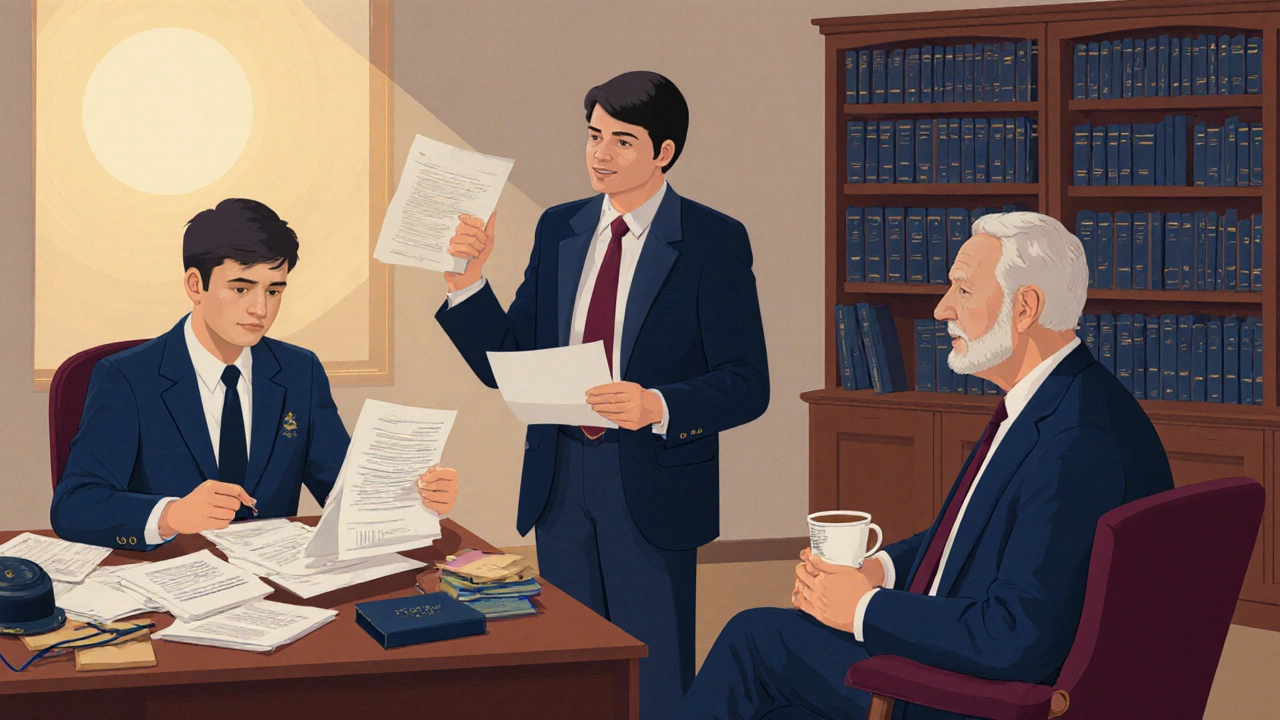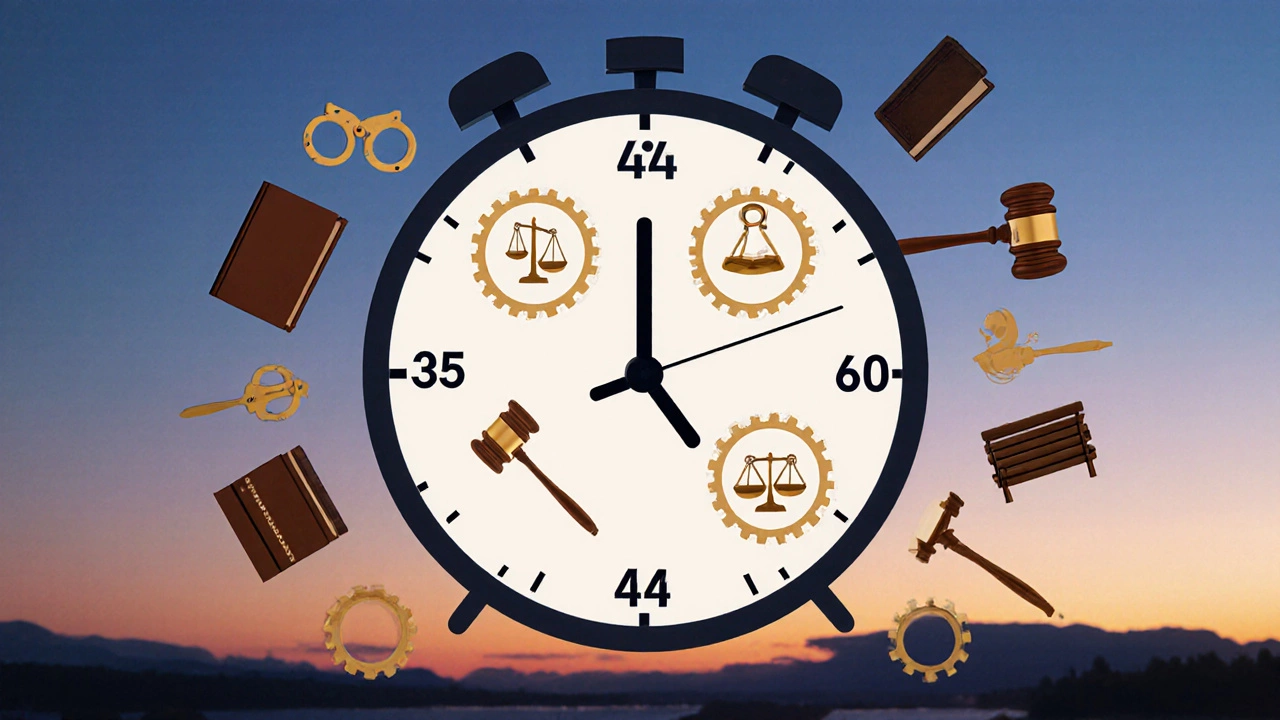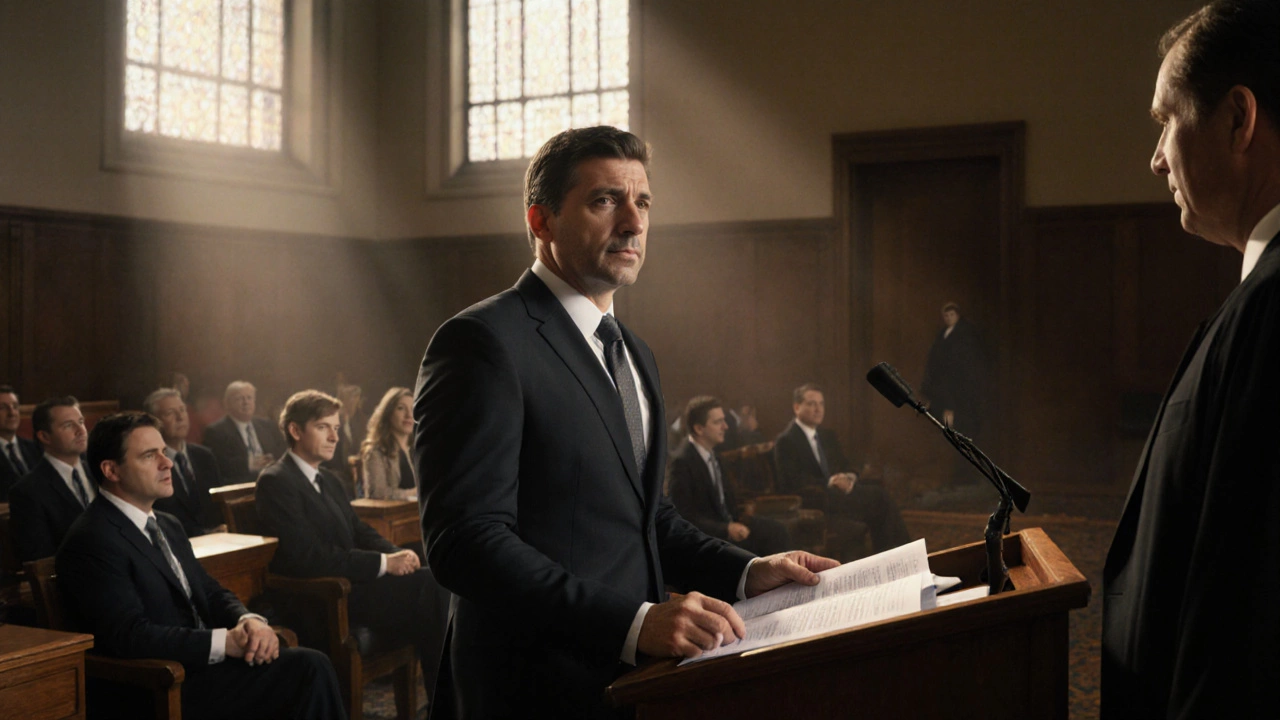Most lawyers in the U.S. and New Zealand are between 35 and 50 years old. That’s not because they start late-it’s because becoming a lawyer takes time. You need four years of undergrad, three years of law school, and then you have to pass a bar exam. By the time you’re licensed, you’re already in your late 20s. Add a few years of working under senior lawyers, handling small cases, and building a reputation, and you’re hitting your prime in your mid-30s.
Why Most Lawyers Are in Their 30s and 40s
There’s no magic number, but data from the American Bar Association and New Zealand Law Society shows that 62% of practicing lawyers are between 35 and 50. Only 18% are under 30, and 15% are over 60. Why this spread? It’s not about talent or drive-it’s about structure.
Law school doesn’t let you skip ahead. Even if you start undergrad at 18, you won’t sit for the bar until you’re 26 or 27. Most new lawyers don’t go solo right away. They join firms, work 60-hour weeks, and spend years learning how to argue in court, deal with judges, and manage clients. By 35, they’re often taking on their first major cases. That’s when the real work begins.
In criminal law, experience matters more than speed. A 32-year-old lawyer might know the rules, but a 45-year-old lawyer knows how to read a jury, anticipate a prosecutor’s move, and negotiate plea deals that actually work. Clients don’t hire lawyers because they’re young-they hire them because they’ve been through it before.
Young Lawyers: The 20s Are for Learning, Not Leading
You see new lawyers all the time-fresh out of law school, dressed in suits that cost more than their rent. They’re sharp, energetic, and eager. But they’re not usually the ones handling serious criminal cases.
Most public defenders and junior associates in criminal law firms are in their mid-20s. They do the legwork: reviewing police reports, drafting motions, interviewing witnesses. They’re learning the rhythm of court calendars, how to file paperwork without getting it rejected, and how to talk to clients who are scared or angry. It’s grunt work-but it’s essential.
One public defender in Wellington told me she spent her first three years just handling traffic violations and minor theft cases. Only after 18 months of that did she get assigned her first assault case. That’s not unusual. Law firms don’t hand over murder trials to someone who’s been licensed for six months.
Older Lawyers: Why Many Stay Past 60
It’s common to assume lawyers retire at 60. But in reality, many stay in practice well into their 60s and 70s. Why? Money isn’t always the reason. Many have savings. It’s about identity.
Law isn’t just a job-it’s a career built on decades of relationships, cases, and reputation. A 68-year-old criminal defense lawyer in Auckland still takes on cases because he knows the judges, the prosecutors, and the court clerks by name. He’s got a track record. Clients trust him because he’s been doing this since before smartphones existed.
Older lawyers often shift roles. They don’t sit in court every day anymore. They consult, mentor younger lawyers, or handle appeals. Some reduce their hours. But they don’t walk away. The legal system still needs people who’ve seen it all.

Age and Specialization: Criminal Lawyers Are Older Than You Think
Not all lawyers are the same age. It depends on what they do.
- Criminal defense lawyers: Average age is 44. They need street experience, courtroom instincts, and deep knowledge of local procedures.
- Corporate lawyers: Average age is 40. They often climb corporate ladders and move between firms.
- Family lawyers: Average age is 42. They deal with emotional cases and need strong communication skills built over time.
- Younger specialists: Tech law, cybersecurity law, and intellectual property law have more lawyers under 35. These fields are newer and move faster.
If you’re looking for a criminal lawyer near you, you’re likely to find someone in their late 30s to early 50s. That’s not a coincidence. It’s the result of how the profession works.
Is It Too Late to Become a Lawyer After 40?
People ask this all the time. The answer is no-unless you’re afraid of hard work.
There are lawyers who started law school at 42. Some were teachers, nurses, or small business owners. They took out loans, studied at night, and passed the bar. One woman in Christchurch became a criminal defense lawyer at 47. She’d spent 20 years as a social worker. She knew how to talk to people in crisis. That’s what made her good at defending clients.
Law firms don’t turn away older candidates because of age. They turn them away because they don’t have the right mindset. You need discipline. You need resilience. You need to be okay with failure-because you’ll lose cases. You’ll get yelled at. You’ll sit in court for hours and still not win.
But if you’re ready for that, your age is an advantage. Older lawyers bring life experience. They understand stress, family dynamics, financial pressure. Clients sense that. They feel safer with someone who’s lived through more than just textbooks.

What This Means If You Need a Lawyer
If you’re searching for a criminal lawyer near you, don’t assume the youngest one is the best. Don’t assume the oldest one is outdated. Look for someone who’s been doing this for at least five years. Check their caseload. Ask how many trials they’ve handled. Look for reviews from past clients-not just ratings, but comments.
Here’s what works: A lawyer who’s been practicing for 7-15 years, has handled at least 50 criminal cases, and still appears in court regularly. That’s your sweet spot. They’re experienced enough to know what works, but not so burnt out they’ve lost touch with the system.
Also, ask if they work with younger associates. The best firms pair experienced lawyers with up-and-comers. That means you get wisdom and fresh energy.
What’s Changing in the Legal Age Game
The legal profession is slowly shifting. More people are entering law later in life. More online law programs are letting working adults earn degrees without quitting their jobs. Some law schools now offer accelerated two-year JD programs.
But the core reality hasn’t changed: becoming a skilled criminal lawyer still takes time. You can’t rush the courtroom. You can’t shortcut experience. You can’t fake credibility.
So if you’re wondering how old most lawyers are-remember this: they’re not old because they’re slow. They’re old because they’ve earned it.
What’s the average age of a criminal lawyer in New Zealand?
The average age of a criminal lawyer in New Zealand is around 44. Most are between 38 and 50, with the majority having at least 7-10 years of experience. This reflects the time it takes to build courtroom skills, understand local court procedures, and earn client trust.
Can a 25-year-old lawyer handle a serious criminal case?
Technically, yes-once licensed, any lawyer can take on any case. But in practice, most firms won’t assign serious cases like assault, drug trafficking, or murder to lawyers with less than 3-5 years of experience. New lawyers usually start with minor offenses and work their way up under supervision.
Is it too late to become a lawyer at 40?
Not at all. Many people switch to law in their 40s after careers in teaching, nursing, or business. Law schools in New Zealand and Australia now offer flexible programs for adult learners. The challenge isn’t age-it’s commitment. You’ll need to study hard, pass the bar, and handle the emotional weight of criminal cases. But life experience often makes older lawyers more effective.
Why do older lawyers still practice after 60?
Many stay because they still enjoy the work and have built deep professional relationships. Older lawyers often reduce their caseloads, focus on appeals or mentoring, and avoid the grind of daily court appearances. Their reputation and knowledge make them valuable, even if they’re not doing 10-hour days anymore.
Should I hire a younger or older criminal lawyer?
Look for someone with 5-15 years of experience. That’s when lawyers have enough skill to handle complex cases but still stay sharp and updated on current laws. A 35-year-old with 8 years in criminal law is often a better fit than a 28-year-old with 2 years or a 65-year-old who hasn’t been in court in five years. Ask about their recent cases and trial outcomes.
